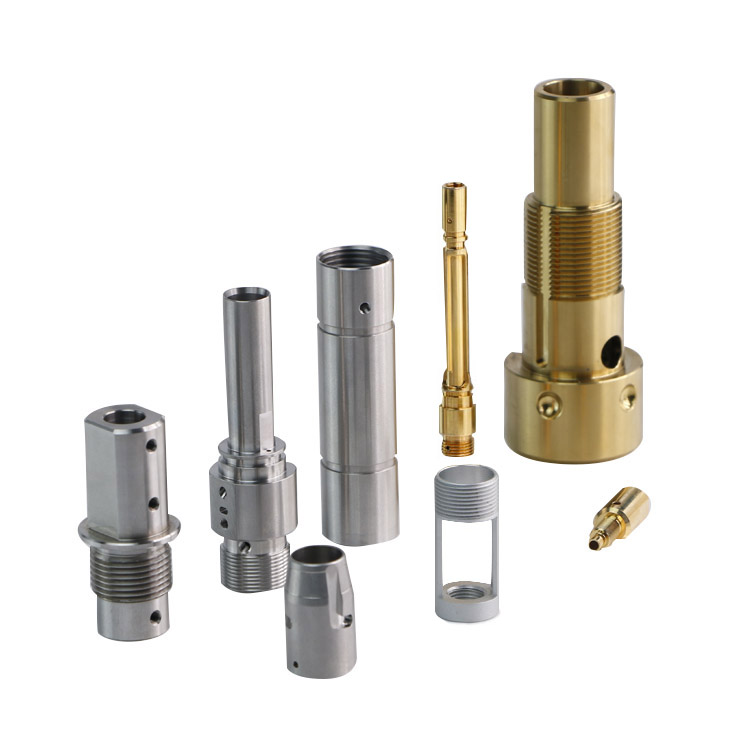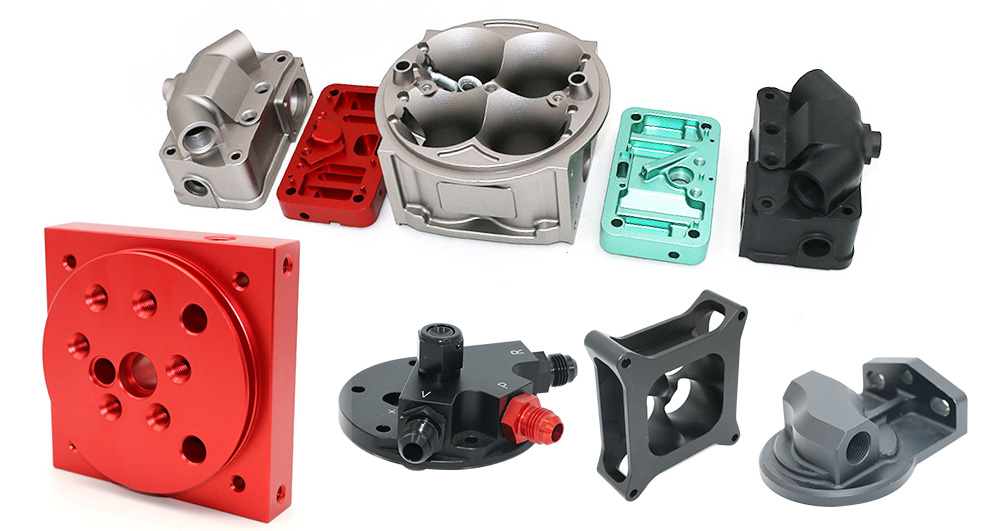15 years one-stop China custom CNC machining parts factory

Hey there I’m VMT Sam!
With 25 years of CNC machining experience we are committed to helping clients overcome 10000 complex part-processing challenges all to contribute to a better life through intelligent manufacturing. Contact us now
 134 |
Published by VMT at Jun 09 2022
134 |
Published by VMT at Jun 09 2022

One thing is for sure. In the future development trend of the automobile industry, the application of aluminum will become more and more extensive, because the aluminum deposits are very rich, the recycling is easier, and the characteristics of its alloys will be stronger. With the advancement of technology, it is not impossible for a certain aluminum alloy to completely replace steel one day.
The design of car accessories should be comprehensively considered in many aspects, such as optimization in terms of design expectations, usage, cost, processing difficulty and materials, etc., to achieve the best balance and rationality. Therefore, aluminum pendants have certain advantages in reducing unsprung mass. Today, most mid-to-high-end cars on the market have aluminum alloy suspensions. Suspensions made of this material have the advantage of being lightweight and relatively low maintenance. The weight of the whole vehicle is reduced, and the wheel pressure is greatly reduced, thereby improving the sensitivity and sensitivity of handling and fuel consumption. In fact, there are several types of suspended materials. Stamped steel is the most common material, but this material is under tension (simply understood as the internal force of the material, if not removed, or it can change the shape of CNC precision machined parts).

Although aluminum alloy suspension has a good effect in reducing weight and improving controllability, its mechanical properties are not as good as that of cast iron, that is, the hardness is not as good as that of cast iron suspension. Therefore, aluminum alloys are used in places where the general car is less stressed, and key components are still required. Cast iron is a very hard iron alloy with high hardness and high carbon content. The disadvantage is that it has low toughness and is very brittle. Therefore, the cast iron suspension will not deform, be removed directly or remain intact.
The two different suspension materials have their own advantages. The advantage of aluminum alloy is light weight, which is in line with the development trend of automobile lightweight, while the cast iron suspension is stronger and more suitable for some hard cars. Mainly off-road vehicles. And the casting is very good, first pour it on the billet, and then pour it for a year and a half. This is the way to relieve stress, and wait for the billet to be affected by stress. Generally speaking, cast steel and cast aluminum are comparable in terms of stress relief. As for wrought aluminum, the cost is too high to be widely available today.
The advantages of hanging aluminum:
In fact, the strength of aluminum used in automobiles is not low. Seven series of aluminum casting plants are used to produce suspension aluminum. At present, the domestic output is very low, and most of them rely on imports, so the cost of aluminum alloy suspension is indeed very high.
However, we generally classify the part connecting the body and the wheel as unsprung mass, so the suspension is also classified as unsprung mass, so the reduction of suspension weight is equal to the reduction of unsprung mass. So he came up with the statement that the spring is one kilogram and the spring is ten kilograms, so for the sake of performance, a method of reducing the weight of each part of the spring was created.
However, the high suspension mass does not conform to the current lightweight development ideas. Like today's cars, they don't have the weight of last century's cars. In fact, the quality of the suspension has dropped considerably.
As for the unsprung mass, of course, the lower the better, because the lower the unsprung mass allows the chassis to have a higher adjustment limit, so it is recommended to use aluminum alloy materials to reduce the unsprung mass by using this method. The use of aluminum alloy suspension reduces the unsprung mass of the vehicle. The mass of the tires has a big effect on how fast the suspension moves up and down. The greater the tongue mass, the longer it takes to change the direction of the action (like a fixed suspension setting), resulting in a reduced ability to track the road. The body weight is small, and the suspension fulcrum cannot be effectively fixed relative to the ground. This way, the body floats before the tires move from the ground to a corresponding degree of undulation.
Although the aluminum alloy suspension is very useful for the handling performance of the vehicle, due to the high cost of CNC machining and manufacturing, it is generally only suitable for medium and high-end models of luxury brands. Currently, there are about 200,000 models on the market. Not seeing use of this suspension material, many models use cast iron or stamped steel as the primary build material for the suspension, and aluminum alloy suspension will be used on about 500,000 models.
In short, the rod is light. When your car is driving on rough roads, the suspension system rebounds faster when it is compressed. An aluminum suspension car becomes very stable after 80 yards of suspension. Because the recovery is fast. At the same time, the unsprung mass is reduced, the power of the wheel is increased, that is, the power loss transmitted to the wheel is small, and the acceleration is improved to a certain extent. In general, no matter what the reason is, the application of aluminum alloy suspension in some high-end cars is undoubtedly a highlight!
Ready To Start Your Next Project?
Get Instant Quote

Request a Free Quote
Send us a message if you have any questions or request a quote. We will get back to you ASAP!